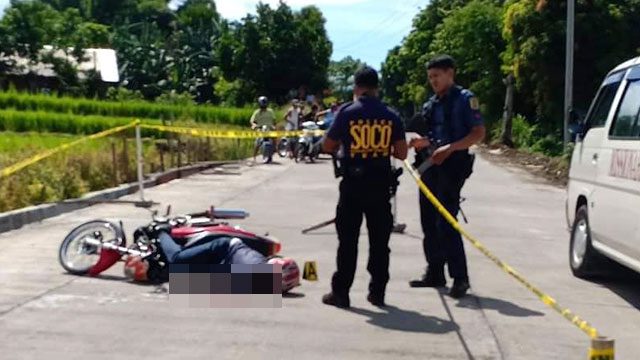SUMMARY
This is AI generated summarization, which may have errors. For context, always refer to the full article.

MANILA, Philippines – Drug suspects, government officials, and ex-officials have been the targets of the most violent attacks in the Philippines since the start of the year, making the country “one of the most dangerous places in the world for civilians,” according to data analyzed by a US-based think-tank.
Victims of the government’s war on drugs accounted for 75% of deaths from targeted killings, and 18% were current and former government officials caught in political rivalries, the Armed Conflict Location & Event Data Project (ACLED) said in a study of targeted violent events from January 1 to June 29, 2019, and released last Wednesday, July 3.
More than half of the attacks – 60% – were attributed to state forces. Attacks by unidentified or armed groups comprised 27% of cases while 8% were by alleged vigilantes, which ACLED noted could also be linked to the state.
The study noted the United Nations High Commissioner for Human Rights’ recent “condemnation” of the “extraordinarily high number of deaths and persistent reports of extrajudicial killings” in the anti-drug war, which ACLED said numbered to approximately 360 cases in the first half of 2019.
The Philippine government has reported 5,425 drug war killings since 2016 but human rights groups estimate the number to exceed 20,000.
ACLED noticed a spike in targeted killings of government officials around the time of the midterm elections on May 13, attributing these to “unidentified or unknown armed groups often linked to their political rivals.” The study counted approximately 90 such killings this year so far.
The study identified 20 instances in which the victim was both a government official and a drug suspect, noting that the Duterte administration has “routinely” accused its opponents of involvement in the illegal drug trade.
The Philippine National Police reported 60 instances of violence related to the May 13 polls, in which 23 people died and 46 were injured.
Other victims of targeted attacks were members of political parties, leftist groups, land activists, farmers, lawyers, and judges.
All in all, ACLED recorded more 450 attacks that resulted in nearly 490 deaths so far this year. Half of the reported incidents were in Central Luzon, 23%, and Calabarzon, 22%. Another 10% were in the National Capital Region.
Because most of these killings had to do with either the government’s campaign against illegal drugs or political rivalries, ACLED considered them to be politically motivated.
The study concluded that “more than half of all political violence” in the country since 2016, the year President Rodrigo Duterte came to power, targeted civilians.
ACLED is an independent, non-governmental organization registered in the US. It collects and analyzes information on conflicts and political violence across the developing world, and makes its findings available to the public for free. It cited local police reports, media reports, and consultations with human rights organizations, photojournalists, and journalists as sources in its methodology for collecting data on drug-related violence in the Philippines.
Check out ACLED’s map showing the distribution of targeted killings in the country here. – Rappler.com
Add a comment
How does this make you feel?
There are no comments yet. Add your comment to start the conversation.